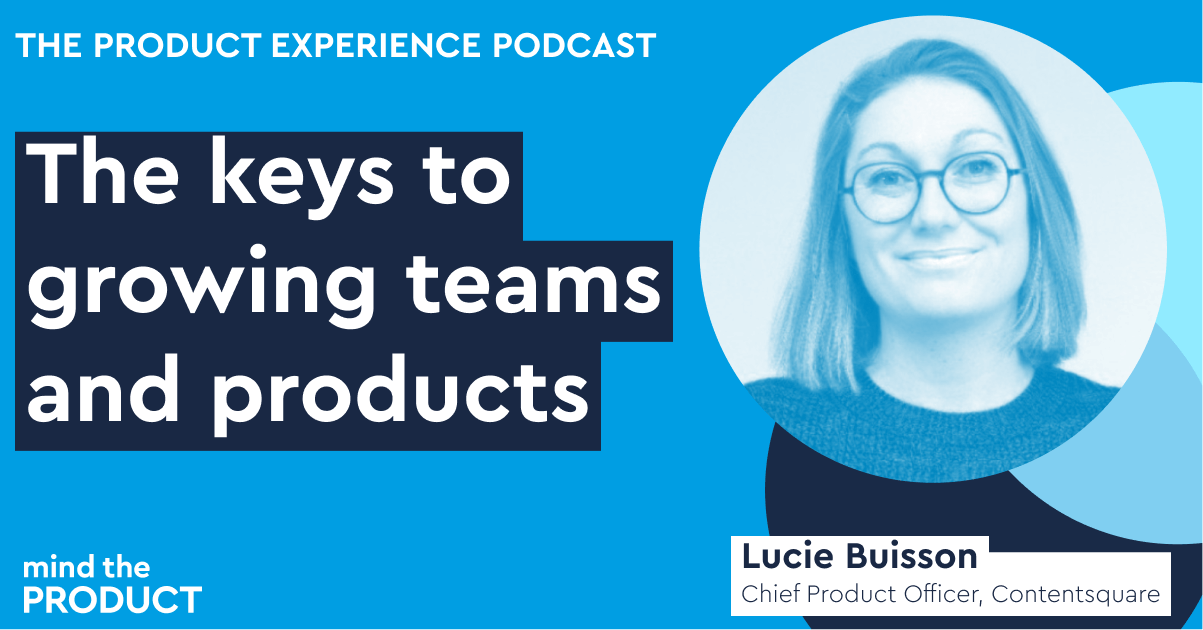Ronke Majekodunmi, currently Senior Product Manager for Large Enterprise at PayPal, has a lot of sound advice about how to lead cross-functional teams fearlessly as a product manager. They’re the lessons she’s learned from a career to date which has seen her always strive to inspire and to do the right thing by other people.
We talk to her about the lessons she’s learned about fearless leadership and what you can do to manage your anxieties and overcome your fears of failing.
In brief:
When Ronke first started as a product manager there wasn’t anyone else who looked like her, she says. There also wasn’t anything like the wealth of resources available to product people that there are today. She says: “I didn't have anybody that I could go to say, ‘hey, help me figure this out’. So I was afraid to make decisions.” She would become paralysed by imposter syndrome, she would worry about her ability to do her job and that her boss would overrule her.
She started by performing a SWOT analysis on herself. “I needed to work out what I was afraid of and the worst thing that could happen. I realised the worst thing for me would be to work on a product that fails and I thought that would be the end of my career, because everyone would say it was my fault.”
Ronke says that to become fearless we must do things that scare us. She therefore made the decision to take action so that she didn’t let her fears paralyse her any longer. Becoming fearless has been an incremental process for Ronke, but she began by going to stand-ups and admitting that she didn’t have all the answers. Rather than guess at an answer, she would own up, agree to research her scrum team’s questions and “figure it out”.
It meant she started to share the product vision with her team instead of carrying the entire vision herself. She adds: “Then I also started to bring the voice of the customer directly to the engineering team.” By this Ronke means that she would analyse the sales pipeline and look at why a sale had not been won. “I was letting the scrum team into my world. They were seeing why I was going to all these meetings, and what our potential customers were looking at.” At the end of each month, she would give the engineering team a report on customer renewals and the reasons why customers had or hadn’t renewed. “They then began to understand I was sharing the product vision with them. They begin to understand why the roadmap was the way that it was, and why the product strategy was how it was.”
She’s since taken the same approach with all her cross-functional teams, and has found that it’s the best way to get an innovative solution to a problem. She’s learned that being fearless means you must be vulnerable and check your ego at the door. “Once I had learned to share the product vision, all I did was enhance this as I moved through different organisations.”
Ronke says that being fearless in your leadership means being transparent - because transparency creates trust. She says: “Whenever there was a huge customer problem that we needed to address - which happens - I would share it at stand up. Then it becomes a ‘we’ problem, not a Ronke problem.”
Transparency is empowering for a team, she says, and gives them the confidence to be inquisitive. “They can be imaginative, they can be creative, because I’m just telling them what's going on.”
Collaboration is another facet of fearless leadership. Ronke says that she will join meetings with customer service teams, relationship management teams, sales teams and the like. She likes to share problems early as it helps her to find out what will work and what won’t. “As a product leader I should be able to bring the entire organisation together and be transparent,” she says.
Like countless other product people, Ronke didn’t have a straight run into product management. After college, she took a job in tech support for a bankruptcy filing program at LexisNexis. Over time she became the subject matter expert for the engineering team. It proved a formative experience that has stayed with her. She says: “Even today when I go into an organisation, the first person I buy coffee for is the tech support person. They’re the eyes and ears of the customers.”
Later still she started to work with the program’s product manager and then took over the role when the product manager left. Ronke says: “I knew the competitors, I knew the landscape, I was just trying to do everything. And that’s how I got into product management.”
Mentoring is really important to Ronke. She’s had the benefit of being mentored and has had “four great, incredible women” to help her navigate her career since she graduated from college. “They’re all women that I’ve worked with, and they've always just been there for me and mentored me,” she says. “When you start in corporate America, everything from the way you present yourself, the way you dress, the way you talk, make your presentations, it all makes an impression. But you don't know that when you’re just starting out. These women helped to polish me and make the person you see now, and I’m so grateful for that.” Only one of her mentors is African American, the other three are Caucasian, she adds, “because I don't want product managers, especially black women, to think that they should only find black product managers to learn from”.
She tells the story of attending the 2019 Grace Hopper conference (a series of conferences in the US designed to highlight the research and career interests of women in computing). She says: “I kept having women of colour, black women, recent college grads, coming up to me and talking to me. They’d take a picture of my badge because they wanted to know how to find me on LinkedIn. They’d come to the PayPal booth, and their questions were all the same - ‘how did you land a job at PayPal? You are a black woman? How are you a product manager? How is that even possible? What is the culture? How do I become you?’.”
Mentoring, then, is Ronke’s way of paying it forward. She meets regularly with her mentees at PayPal and also gets a LinkedIn message at least once a week from a black woman asking for advice or feedback: “Sometimes they’re just amazed and say ‘you look like me!’.”
As Ronke says, this needs to change. Diversity in product is not just morally right, it's also the ethical thing to do. She says: “We need more diverse voices in Product. We need to build for people who don't look like us - people who look like other people - because that's the only way we're going to solve the problems of tomorrow.”
She recently spoke at the Foster School of Business’ Inclusive Product Management Summit and sings the praises of its accelerator program which is designed to help “aspiring product managers from marginalised communities”. She also regularly helps the program’s participants with interview preparation.
Ronke has a final piece of advice that also speaks to her doctrine to pay it forward. “I always tell every single product manager, ‘be nice, just be graceful’. If you see somebody in need, ask how you can help them. You never know where your paths will cross again.”
The power of mentoring – DeVaris Brown on The Product Experience
A well-rounded personal growth plan








Comments
Join the community
Sign up for free to share your thoughts